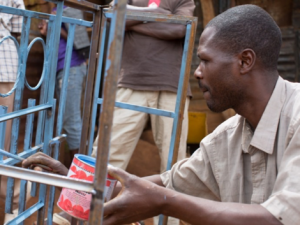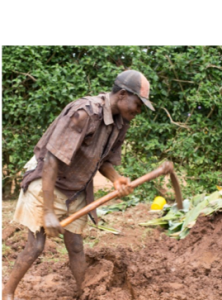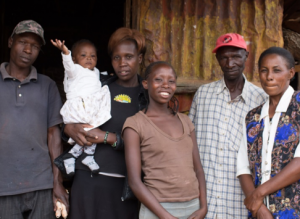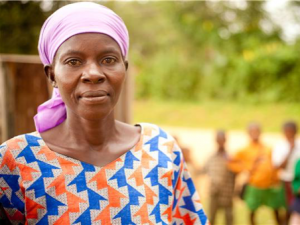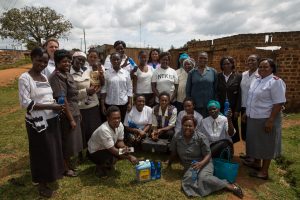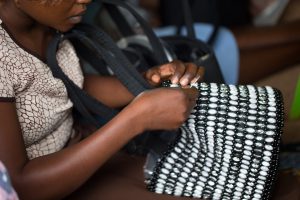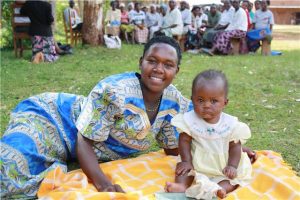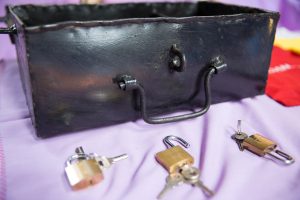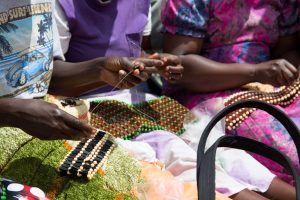The We Will Territorial Conference for Women Leaders is excited to support our fellow women leaders, who participate in The Salvation Army’s WORTH program.
We as women leaders of the USA Southern Territory aim to join women leaders of the Kenya West Territory by raising $4,500 during the weekend of the We Will conference, which is September 23-25, 2016.
Let us begin preparing our offering now!
About WORTH
ABOUT WORTH
WORTH is an investment savings model and community action model that honors women’s worth. It enhances their capacity to flourish as business women and to fight human trafficking, malaria and HIV/AIDS.
The Salvation Army’s WORTH project is a program by and for women to improve financial well-being through small groups that save and lend money, but also to address other issues with the help of community education.
WORTH is a model that involves and is comprised of hundreds of small groups of women collaborating together for change. Small groups of up to 25 women are facilitated by The Salvation Army’s Home League and staff. However, the government of the group is chosen by the members.
NUMBERS
In Kenya, as of the end of 2015, 794 groups comprised of over 18,000 members have formed to launch more than 1,400 small businesses.
Since the initial implementation of the WORTH project over 10 years ago, The Salvation Army has brought new hope and opportunity to more than 50,000 women and their families in Tanzania, Kenya and Uganda thanks to the generous support of donors.
How WORTH Groups Work
Groups of 25 are organized by The Salvation Army to operate their own savings and loan programs, business development and community education efforts. A staff empowerment worker accompanies each group, but governance of the group is managed by the members themselves.
Governance
The members of the group contribute dues, develop their own rules about how they will save and lend, and choose a chairperson, comptroller, secretary and treasurer. They also study bookkeeping and business practices. Technical assistance is provided by an Empowerment Worker, who serves 10 groups.
[show_more more=”show more” less=”show less”] Each group elects a Management Committee (Chairperson, Secretary, Treasurer and Controller). Dues and savings are collected at weekly meetings. Each group makes its own cash box with three locks. The Chairperson, Comptroller, and Secretary each have a key to one of the locks while the Treasurer, who has no key, keeps the cash box. All four members of the management committee have to be present to open the box, which is only opened at group meetings.
Initially, the amount in the group fund is very small. As it gets larger, the women can begin to issue loans, so that the money does not remain in the cash box, but is circulating and earning interest.
Business Development
Women start and run businesses, but also learn about the ideas and practices of business through book-learning together. In fact, women learn to read and improve their reading skills while studying the practical matters of business. They use a series of books called Women in Business.
The first book in the series, Our Group, utilizes the key word method and teaches women basic sounds, letters and numbers, and principles for developing strong groups. With the help of local literacy volunteers, the women work through this first book together.
The second book, Road to Wealth, teaches about savings, responsible lending and borrowing, and basic bookkeeping principles. It shows how basic arithmetic can help you to keep track of funds.
The books are reinforced by the Selling Made Simple pamphlet series that presents small business marketing strategies for adults, who are newly literate.
Building small businesses is a key component of WORTH, and women are encouraged to build businesses related to what they already know how to do, gearing their businesses to the local markets. Many women familiar with subsistence farming choose to grow gardens, raise goats or chickens, while others near towns engage in petty trade. WORTH recommends diversifying enterprises to spread risk and increase reliability of income streams. Developing a diverse approach takes time.
Community Education
The WORTH project is a community action model that engages women in protecting and caring for their communities. Community education clusters focus on developing skills to respond to shared concerns.
Women already care for their communities. Acting together with new skills, they can help mobilize men, women and children to respond to the challenges of human trafficking, malaria and HIV/AIDS in a way that upholds the WORTH of all.
- WHY TRAFFICKING?
Kenya is a source, recipient and transit destination for human trafficking.- The communities selected are highly recruited for domestic “work” in the Middle East. 99% of domestic workers in Middle East Countries were not protected by labor laws as of 2010. The main recruiting country is Saudi Arabia, which only ended legally sanctioned slavery in 1962, so the practice is less taboo than other places (www.haartkenya.org).
- The situation is so severe that the Kenyan government actually banned its citizens from migrating out of Kenya for domestic work in 2012. The ban does not protect those who were already there or those who travel despite it, in search of work.
- Some of the project’s target areas have rates of unemployment as high as 60%.
The anti-trafficking training deals with how to use precautions to avoid being exploited as a trafficking victim and how to help survivors recover and be welcomed back when they return home.
- WHY MALARIA?
Malaria is highly preventable and treatable, yet:- 20% of children’s deaths under the age of 5 in Kenya are caused by malaria.
- In 2012 one of every 20 deaths from malaria worldwide occurred in Kenya.
- More than half of mothers on the coast have not heard, watched or read any information about the most common antimalarial medicine.
- In some areas as many as 1/3 of pregnant mothers do not take preventative antimalarial medicines during pregnancy. (internewskenya.org/dataportal/data/29)
The malaria training deals with prevention and treatment.
- WHY HIV/AIDS?
HIV/AIDS is highly preventable. With access to treatment, a person living with HIV can live as long as they would be expected to live as a person living without HIV.- 6 Million adults are living with HIV in Kenya in 2014.
- The HIV prevalence rate is 6.1% of adults – Official Statistics Kenya’s Ministry of Health (nacc.or.ke)
- 1% prevalence rate is considered an epidemic by UNAIDS.
The HIV/AIDS training deals with how the virus is transmitted and how to reduce the likelihood of its transmission, the value of being tested for HIV and living with HIV/AIDS.
[/show_more]

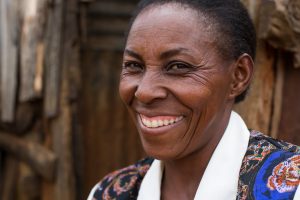 Jane is a participant of The Salvation Army’s WORTH project in Kenya West Territory. Her story is an example of the WORTHwhileness of this endeavor.
Jane is a participant of The Salvation Army’s WORTH project in Kenya West Territory. Her story is an example of the WORTHwhileness of this endeavor.
In 1998, Jane’s husband died. She was two months pregnant with their sixth child at the time. Her oldest was 16 and the youngest was 8 years old. She tried joining a local Rotating Savings and Credit Association, which provides its members a lump sum in turns. The amount was never enough to help the family recover financially and she became desperate. She joined other women in her community that engaged in occasional prostitution, but found each experience degrading. Jane could not continue with this, but was not finding solutions to her family’s financial troubles.
Jane’s children often had to stay home from school because she could not pay the fees. Eventually, her third child Margaret dropped out of school and got married. Jane began her own business in ironworks and struggled to make a living. After paying her expenses, she often would only break even. She remarried. But her new husband left as the financial struggles deepened. In 2008, she had no employees and no profit.
Joining WORTH in 2012 was a game-changer.
Jane saved money in the group and took incremental loans from them to develop her business. She credits the lessons learned from the WORTH materials with helping her to understand the principles of business and how to make a profit.
Jane also hired two men to work as laborers and a woman as an administrative assistant. Below are photographs of one of her employees. She used to be desperate enough to sell herself to men, but now she employs them in work that is not degrading.
Her second husband had left her, but has since returned and now works in their garden to produce food for their family and for sale.
Jane’s business success has also allowed her to invest in her daughter, Margaret, who returned to school, and now is attending university.
